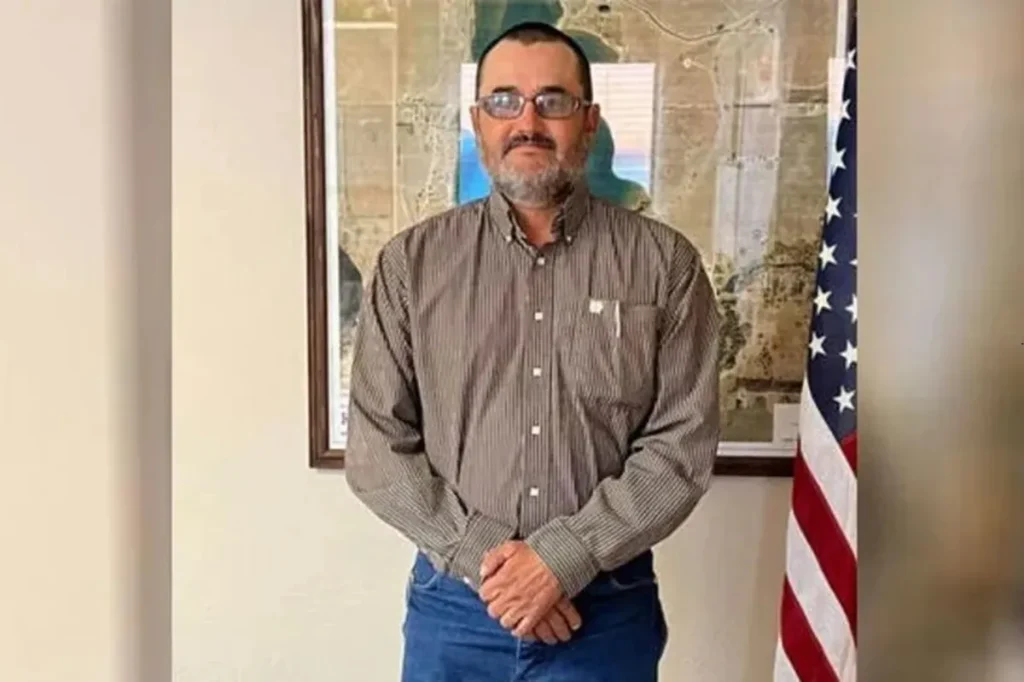Kansas Mayor Faces Voter Fraud Charges Despite Decades in the US
In a small Kansas town, a complex story of immigration, civic leadership, and alleged election fraud is unfolding, highlighting the tensions in America’s ongoing debate about election integrity. Jose “Joe” Ceballos-Armendariz, the 54-year-old mayor of Coldwater who recently won reelection, now faces serious legal challenges after the Department of Homeland Security (DHS) released documents supporting voter fraud charges against him. The case centers on Ceballos-Armendariz’s immigration status: despite living in the United States for decades with a green card obtained in 1990, he is not a U.S. citizen but allegedly voted in multiple elections while claiming to be one. Kansas Attorney General Kris Kobach announced three counts of voting without being qualified and three counts of election perjury against the mayor, charges that could not only end his political career but potentially result in deportation proceedings if he’s convicted.
The situation in Coldwater illustrates the real-world complexities behind America’s heated political rhetoric around voter fraud. While Ceballos-Armendariz has been a longstanding community leader, the documents released by DHS show contradictions in his statements about citizenship. When applying for U.S. citizenship in February, he reportedly claimed he had never falsely represented himself as a citizen, despite having previously attested to being one on voter registration forms. The case has gained additional attention because it emerges against the backdrop of years of intense national debate about election integrity following the 2020 presidential election. However, unlike the widespread fraud allegations made by former President Trump and his allies—which resulted in virtually no convictions and were refuted by a bipartisan group of judges and lawyers—this case involves specific evidence against an individual who, as a non-citizen permanent resident, would indeed be ineligible to vote under U.S. law.
The community of Coldwater now finds itself in limbo as it grapples with these allegations against its recently reelected mayor. City Council President Britt Lenertz expressed the difficult position faced by local officials, stating that while the allegations are “understandably concerning,” their focus remains on ensuring city operations continue smoothly while allowing “the proper legal process to take its course.” The small town is seeking guidance on potential consequences if Ceballos is ultimately found ineligible to serve, highlighting how cases like these affect real communities beyond the political headlines. The Coldwater City Council called a special meeting after Ceballos’ reelection to discuss the charges, though decisions about next steps remain pending as they navigate this unprecedented situation for their community.
The response from federal authorities has been decisive. DHS Assistant Secretary Tricia McLaughlin issued a statement declaring that “this alien committed a felony by voting in American elections” and emphasized that if convicted, Ceballos-Armendariz would face removal proceedings. McLaughlin highlighted the Trump administration’s efforts to give states access to the Systematic Alien Verification for Entitlements (SAVE) program as a “critical tool” for maintaining election integrity. Attorney General Kobach, who has long advocated for proof-of-citizenship requirements for voting, framed the case in stark terms: “Every time a noncitizen votes, it effectively cancels out a U.S. citizen’s vote.” These statements reflect the firm position of current federal authorities that voting by non-citizens constitutes a serious violation of electoral laws.
What makes this case particularly noteworthy is that it involves someone deeply integrated into American society. Ceballos-Armendariz has lived in the United States for decades, served his community as mayor, and had even begun the process to become a naturalized citizen. His 1995 battery conviction, noted in the DHS documents, adds another layer of complexity to his immigration and citizenship application. The case thus raises difficult questions about belonging, participation, and the boundaries of civic engagement for long-term residents who aren’t citizens. Unlike discussions of foreign interference in elections or temporary visitors voting illegally, this situation involves someone who has built a life and career in American civic life while allegedly circumventing the legal requirements for political participation.
As the legal process unfolds, the Coldwater community and observers nationwide will be watching to see how authorities balance enforcement of voting laws with considerations of Ceballos-Armendariz’s decades of community ties. The Kansas Reflector reports that city council members remain committed to keeping operations efficient during this period of uncertainty. The case serves as a reminder that beyond the heated rhetoric and national debates about election integrity, there are real people and communities affected by the intersection of immigration status and civic participation. Whatever the outcome, the situation in Coldwater illustrates the complex realities behind America’s ongoing struggles with questions of citizenship, belonging, and the right to participate in democratic processes—questions that extend far beyond any single election or individual case.


